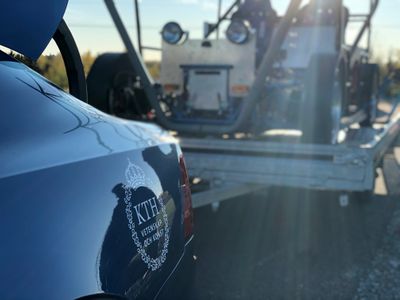The students can in the beginning of the course vote for the projects that they would like to participate in the most. Then the teachers will try to match the students into the projects that they most wanted where each project is between 3-10 students, depending on project. The proposed project come from either industrial partners or from research projects at KTH where there is a clear need to analyse a problem or develop technology.
In the first part of the project course in vehicle dynamics, SD2229, the student will usually do the following steps:
- Benchmarking and related technology search
- Brainstorming and idea generation
- Product definition and analysis
This can however change between what type of project that the student chooses.
